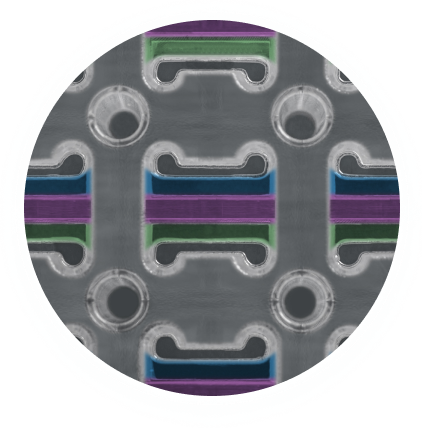Applications
Neurovascular procedures involve the intricate treatment of conditions affecting the blood vessels in the brain and spinal cord, such as aneurysms, stroke, and arteriovenous malformations. These procedures require highly specialized devices that come into direct contact with blood in highly sensitive tissues, making hemocompatibility and biocompatibility critical factors.
Cardiovascular implants, such as stents and grafts, are crucial in treating blood vessel diseases and conditions like aneurysms, blockages, and vascular malformations. These devices, however, must interact seamlessly with the body’s vascular system to avoid complications such as blood clotting, immune responses, and infections.
Electrophysiology plays a vital role in diagnosing and treating heart rhythm disorders. Procedures like ablations, pacemaker insertions, and implantable cardioverter-defibrillators (ICDs) rely on specialized devices. However, traditional materials used in these devices can lead to complications like blood clots and inflammation.
Extracorporeal Membrane Oxygenation (ECMO) is a critical life support technique for patients with severe heart and/or lung problems, particularly in cases where conventional therapies have failed. The ECMO system temporarily takes over the function of the heart and lungs by oxygenating blood outside the body. Despite its life-saving capabilities, ECMO carries the risk of blood clot formation.
Dialysis is a lifesaving treatment for patients with kidney failure, involving the removal of waste products and excess fluids from the blood. The effectiveness and safety of dialysis heavily depends on the biocompatibility of the devices used, such as dialyzers and blood lines, which are in direct contact with the patient’s blood.
Bypass grafts are essential in the surgical treatment of cardiovascular diseases, especially for conditions like coronary artery disease and peripheral artery disease. These grafts are used to reroute blood around blocked or narrowed arteries, restoring proper blood flow to the heart or other critical areas.
Blood filtration is an essential process in various medical treatments, including dialysis for kidney failure, plasmapheresis, and other extracorporeal blood purification therapies. These procedures require devices that come into direct contact with blood, making hemocompatibility a critical factor to prevent complications such as clotting and inflammation.

